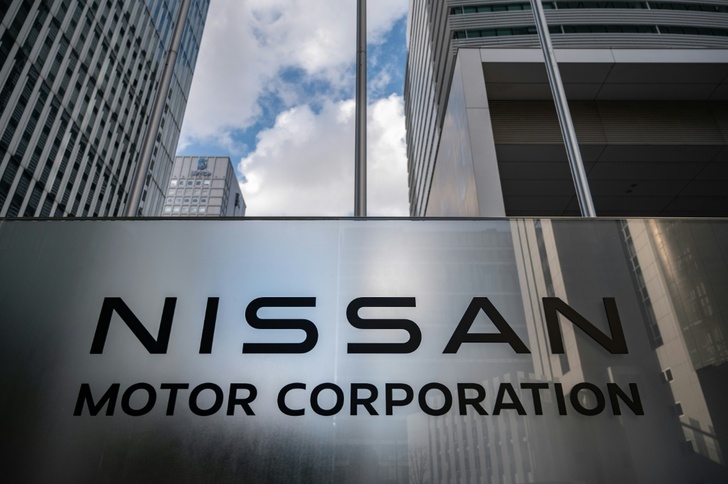Nissan maintained its full-year profit forecasts on Thursday, saying chip shortages and other Covid disruptions would hit sales volumes but that it would fight back through "strict financial discipline".
The Japanese auto giant, which this week signed a landmark deal rebalancing its fraught alliance with Renault, predicted more production setbacks due to the shortage of semiconductors plaguing the industry.
The carmaker trimmed its annual unit sales target by eight percent to 3.4 million vehicles, with chief operating officer Ashwani Gupta telling reporters the declines would be felt mainly in China and North America.
He struck an optimistic tone, however, saying that "I think the US is absolutely okay, and China, we will recover".
"Definitely what we are seeing today, in the month of February, (is) that markets are coming back," he said.
Nissan said it still expects a net profit of 155 billion yen ($1.2 billion) in the 2022-23 financial year, and also left its operating income outlook unchanged on Thursday.
"Strong currency fluctuations and increases in raw material prices" as well as the spread of Covid-19 infections in China are among the headwinds the company faces, it said.
But in the January-March quarter, Nissan "expects to offset the negative impact of volume decline by continued improvement in performance with strict financial discipline".
Net profit in the nine-month period to December tumbled 43 percent year-on-year to 115 billion yen, despite the positive impact of a weaker yen, which inflates profits for exporters.
But in the third quarter, net profit jumped 55 percent compared to the same period the previous year.
- Renault deal -
Despite the "very challenging business environment" in the third quarter, "the new models we introduced in each market have been very well received by customers, and we are feeling a strong response for the future", CEO Makoto Uchida said in a statement.
The results come hot on the heels of a landmark deal rebalancing Nissan's fraught alliance with its French partner Renault.
The revamped partnership, signed earlier this week, will end Renault's decades-long dominance over Nissan that has often been dubbed the "unequal treaty", slashing its share in the Japanese company to 15 percent from 43.4 percent.
The agreement also involved Nissan taking a stake of up to 15 percent in Renault's new electric vehicle venture Ampere.
It marks the latest twist in Nissan's recent years of tumult, from the arrest of former chief Carlos Ghosn to pandemic-triggered chip shortages and the conflict in Ukraine, which led the automaker to exit Russia citing supply chain disruptions.
But even after the overhaul of the Nissan-Renault relationship, uncertainty will likely persist over Nissan's path toward recovery, some analysts say.
Underlying this view is "persistent turmoil in supply chains, seen in issues such as the shortage of semiconductors, price hikes of key materials, and expected increases in spending for electrification", S&P Global Ratings said ahead of the earnings release.
Seiji Sugiura, senior analyst at Tokai Tokyo Research Institute, told AFP that producing fewer cars could be a good thing for the company.
"Previously, Nissan relied on discounts and incentives to increase sales. But it now does not have to rely on incentives, and is able to increase prices," he explained.
tmo-nf-kaf/aha
© Agence France-Presse
Your content is great. However, if any of the content contained herein violates any rights of yours, including those of copyright, please contact us immediately by e-mail at media[@]kissrpr.com.
Source: Story.KISSPR.com

